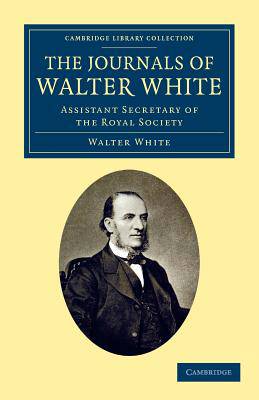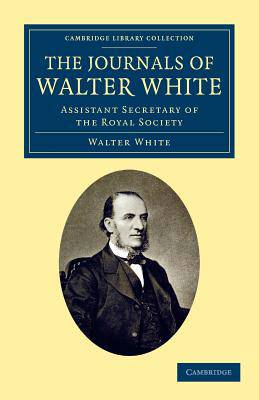
Door een staking bij bpost kan je online bestelling op dit moment iets langer onderweg zijn dan voorzien. Dringend iets nodig? Onze winkels ontvangen jou met open armen!
- Afhalen na 1 uur in een winkel met voorraad
- Gratis thuislevering in België vanaf € 30
- Ruim aanbod met 7 miljoen producten
Door een staking bij bpost kan je online bestelling op dit moment iets langer onderweg zijn dan voorzien. Dringend iets nodig? Onze winkels ontvangen jou met open armen!
- Afhalen na 1 uur in een winkel met voorraad
- Gratis thuislevering in België vanaf € 30
- Ruim aanbod met 7 miljoen producten
Zoeken
€ 70,95
+ 141 punten
Uitvoering
Omschrijving
Although he left school at fourteen to work as an upholsterer and cabinet-maker, Walter White (1811-93) would spend forty years working in the library of the Royal Society. White was mostly self-taught, a voracious reader who also learnt German, French, and Latin, and a diligent attender at lectures and other events offering self-improvement. After a brief emigration to the United States, he returned to Britain in 1839, and was offered a post as 'attendant' in the Royal Society's library in 1844; this led to his cataloguing much of the collection, and in 1861 he was appointed Librarian. He became acquainted with many of the Society's members, including Thomas Carlyle, Charles Darwin, and Lord Tennyson. These journals, published posthumously by his brother in 1898, begin with a brief account of his early years before charting his intellectual progress and career, ending in the year he retired, 1884.
Specificaties
Betrokkenen
- Auteur(s):
- Uitgeverij:
Inhoud
- Aantal bladzijden:
- 302
- Taal:
- Engels
- Reeks:
Eigenschappen
- Productcode (EAN):
- 9781108045131
- Verschijningsdatum:
- 8/03/2012
- Uitvoering:
- Paperback
- Formaat:
- Trade paperback (VS)
- Afmetingen:
- 140 mm x 216 mm
- Gewicht:
- 385 g

Alleen bij Standaard Boekhandel
+ 141 punten op je klantenkaart van Standaard Boekhandel
Beoordelingen
We publiceren alleen reviews die voldoen aan de voorwaarden voor reviews. Bekijk onze voorwaarden voor reviews.











